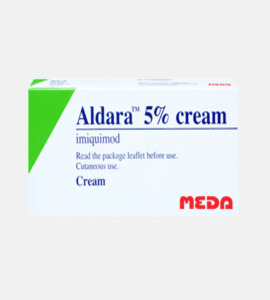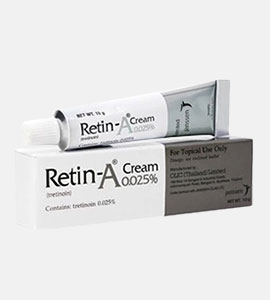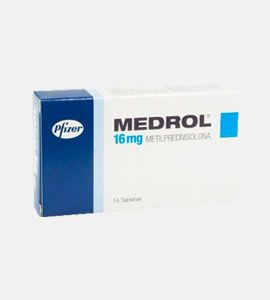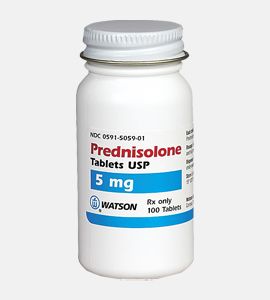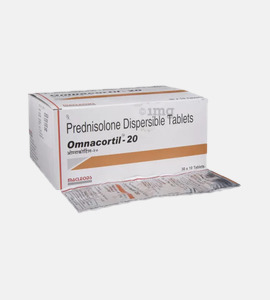
* For illustration purpose only
Prednisolone

In Stock

* Prices in the list do not apply to Switzerland, Sweden and Denmark. Customers are advised to place an order, and our team will contact back with updated prices.

Last purchase: 35 minutes ago
There are 21 users looking at this product right now
Prednisolone Information
Common Use
Prednisolone is a synthetic analogue of the hormones cortisone and hydrocortisone. The drug provides significant anti-inflammatory, antiallergic, anti-exudative, antishock, and anti-toxic effects. Its anti-inflammatory effect is mainly achieved through cytosolic glucocorticosteroid receptors. The hormone-receptor complex penetrates the nucleus of target cells and enhances the expression of genes that code for the synthesis of lipoproteins, substances that inhibit phospholipase A2 and reduce the synthesis of metabolic products of arachidonic acid known to participate in inflammatory reactions. The antiallergic effect of the drug is due to its ability to decrease the number of basophils and inhibit the synthesis and secretion of biologically active substances. Prednisolone is used to treat various conditions, including allergic disorders, collagenosis (skin conditions), infectious nonspecific polyarthritis, psoriasis, lupus, ulcerative colitis, bronchial asthma, acute lymphoblastic and myeloid leukemia, neurodermatitis, eczema, Addison's disease (decreased adrenal function), and many others.
Dosage and Direction
Individual dosing is necessary for each condition. Acute conditions typically start with a dose of 5-60 mg per day. The maintenance dose is usually 5-10 mg per day. Do not take more of Prednisolone than prescribed. Follow all recommendations from your doctor.
Precautions
Inform your doctor about all diseases you have, especially liver or kidney disease, thyroid disorders, diabetes, tuberculosis, malaria, myasthenia gravis, stomach ulcers, glaucoma, and mental illnesses, as the use of steroids may affect these conditions. Steroid medications can weaken the immune system, making it easier to get new infections or worsen existing ones. Inform your doctor if you have been sick with an infection recently. Avoid contact with sick people. Inform your doctor if you have been in contact with individuals who have chickenpox or measles, as these diseases can be dangerous for those on steroids. Do not receive live vaccines during treatment with Prednisolone. Do not stop treatment suddenly to avoid withdrawal symptoms. Inform your doctor if you are pregnant.
Contraindications
This medication should not be used in patients with severe hypertension, diabetes, Cushing's syndrome, pregnant women, severe circulatory failure, acute endocarditis (inflammation of the inner heart cavities), psychosis, nephritis, osteoporosis, stomach and duodenal ulcers, recent surgery, syphilis, active tuberculosis, or in elderly patients.
Side Effects
This medication may cause obesity, hirsutism (excess body hair growth in women), acne, menstrual disorders, osteoporosis, Cushing's syndrome (obesity, decreased sexual function, bone fragility), gastrointestinal ulceration, ulcer perforation, hemorrhagic pancreatitis, hyperglycemia (high blood sugar), increased blood clotting, and mental disorders. Withdrawal symptoms are possible, especially after long-term treatment. Other side effects to report to your doctor if they worsen include changes in vision, depression, seizures, bloody or tarry stools, low potassium (increased urination, extreme thirst, uneven heart rate), and hypertension.
Drug Interaction
Concomitant use of Prednisolone with anti-diabetic and anticoagulant drugs requires dose adjustments. In patients with Addison's disease, caution is advised when using Prednisolone with barbiturates.
Missed Dose
If you forget to take a dose, contact your doctor or healthcare advisor. If it is almost time for the next dose, you may need to skip the missed dose or take a double dose, depending on your condition and treatment. Do not take extra doses without advice.
Overdose
This medication is unlikely to cause life-threatening symptoms. Prolonged use may result in dangerous conditions such as easy bruising, thinning skin, fat accumulation in the back, face, neck, and waist, acne or facial hair growth, impotence, and menstrual problems.
Storage
Store at room temperature between 20-25°C (68-77°F). Keep away from moisture, heat, and sunlight. Do not store in a bathroom or places accessible to children.
Additional Information
Prednisone (Deltasone®) is a corticosteroid that helps reduce swelling, redness, itching, and allergic reactions. It can be used to treat severe allergies, skin problems, asthma, arthritis, and other conditions.
What to Tell Your Healthcare Provider
Inform your healthcare provider if you have any of the following conditions:
- cataracts or glaucoma
- Cushing's syndrome
- diabetes
- heart problems or history of heart attack
- high blood pressure or blood clots
- infection, such as herpes, measles, tuberculosis, or chickenpox
- myasthenia gravis
- psychosis
- osteoporosis
- recent surgery
- seizures
- stomach or intestinal disease, including colitis
- underactive thyroid
- allergic reactions to lactose, prednisone, other corticosteroids, medications, foods, dyes, or preservatives
- pregnant or trying to become pregnant
How to Take This Medication
Take prednisone tablets by mouth. Follow the instructions on the prescription label. Swallow tablets with a glass of water. Take with food or milk to avoid stomach upset. If taking prednisone once a day, take it in the morning when your body naturally releases cortisol. Take doses at evenly spaced intervals. Do not take your medication more frequently than directed.
Contact Your Healthcare Provider
Contact your pediatrician or healthcare provider regarding the use of this medication in children. Special care may be required.
Missed Dose
If you miss a dose, take it as soon as you remember. If it is almost time for your next dose, contact your healthcare provider. You may need to skip the missed dose or take a double dose, depending on your condition and treatment. Do not take extra doses without advice.
Drug Interactions
Drug interactions with prednisone include:
- acetazolamide
- anti-inflammatory drugs (NSAIDs, such as ibuprofen)
- barbiturates
- bosentan
- calcium supplements
- certain heart medications
- female hormones, including contraceptives
- live virus vaccines and other vaccines
- diabetes medications
- mifepristone
- phenytoin
- rifabutin
- rifampin
- diuretics
- warfarin
Possible Side Effects
Side effects to report to your healthcare provider include:
- bloody or black, tarry stools
- confusion, excitement, restlessness, a false sense of well-being
- eye pain, decreased or blurred vision, bulging eyes
- fever, sore throat, sneezing, cough, or other signs of infection, non-healing sores
- frequent urination
- increased thirst
- irregular heartbeat
- menstrual problems
- mental depression, mood swings, unrealistic feelings of self-worth or being mistreated
- muscle cramps or weakness
- nausea, vomiting
- pain in hips, back, ribs, arms, shoulders, or legs
- moon face
- skin problems, acne, thin and shiny skin
- stomach pain
- swelling of feet or lower legs
- unusual bruising, red spots on the skin
- unusual tiredness or weakness
- weight gain or loss
Common side effects that usually do not require medical attention but should be reported if they persist or are bothersome include:
- diarrhea or constipation
- headache
- increased or decreased appetite
- increased sweating
- nervousness, restlessness, or difficulty sleeping
- upset stomach
- unusual hair growth on the face or body

Medically reviewed by Dr. Josette Davignon
Last updated: 25.11.2024




